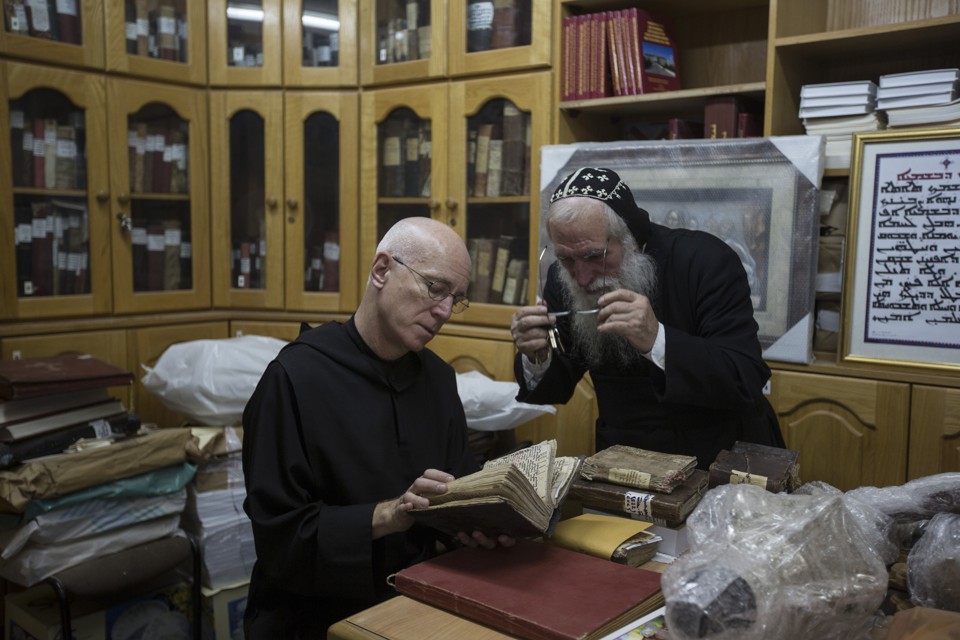
Father Columba Stewart has spent the past thirteen years journeying from the Balkans to the Middle East in an effort to save Islamic and Christians manuscripts threatened by war, theft, weather and extremist groups such as ISIS. Working with local Muslim and Christian communities in Iraq and Syria, Father Stewart has attempted to stop the destruction of countless artifacts, and has trained these local teams to photograph and document historical documents and manuscripts, in coordination with the non-profit Hill Museum & Manuscript Library (HMML).
“Given what’s happened in the last years since the rise of ISIS, it’s very clear that things are really endangered,” says Father Stewart who is from the United States. “It’s imperative to make sure that these manuscripts are safe, because we don’t know what will happen to them.”
Based out of Saint John’s Abbey and University in Collegeville, Minnesota, the mission of HMML is to preserve endangered manuscripts via microfilm and digital format. The organization has documented more than 140,000 complete manuscripts with a total of more than 50,000,000 handwritten pages.
HMML focus is to train local people who keep physical control of the manuscripts and their history. “We never touch the manuscripts,” Stewart explained. “They are the ones doing the work and getting paid for it. They feel proud because they can say ‘We did this,’ which is true.”
Father Stewart’s involvement with HMML began in 2003 when he was asked to join the group for an educational trip to Lebanon. “Being a monk puts me in a very different category. People understand I am not representing a big business or an imperialist cultural agency.”
In 2013, HMML began digitizing Islamic material in Mali after extremists had taken over the city of Timbuktu. The organization is currently digitizing more than 300,000 Islamic manuscripts, including many from that region.
Technician Shaima Budeiry works for HMML in Jerusalem, and says she has digitized thousands of pages including her own family’s private collection. “I feel very proud of what I am doing,” says Ms. Budeiry. “I like this job because this collection belongs to my ancestors.”



